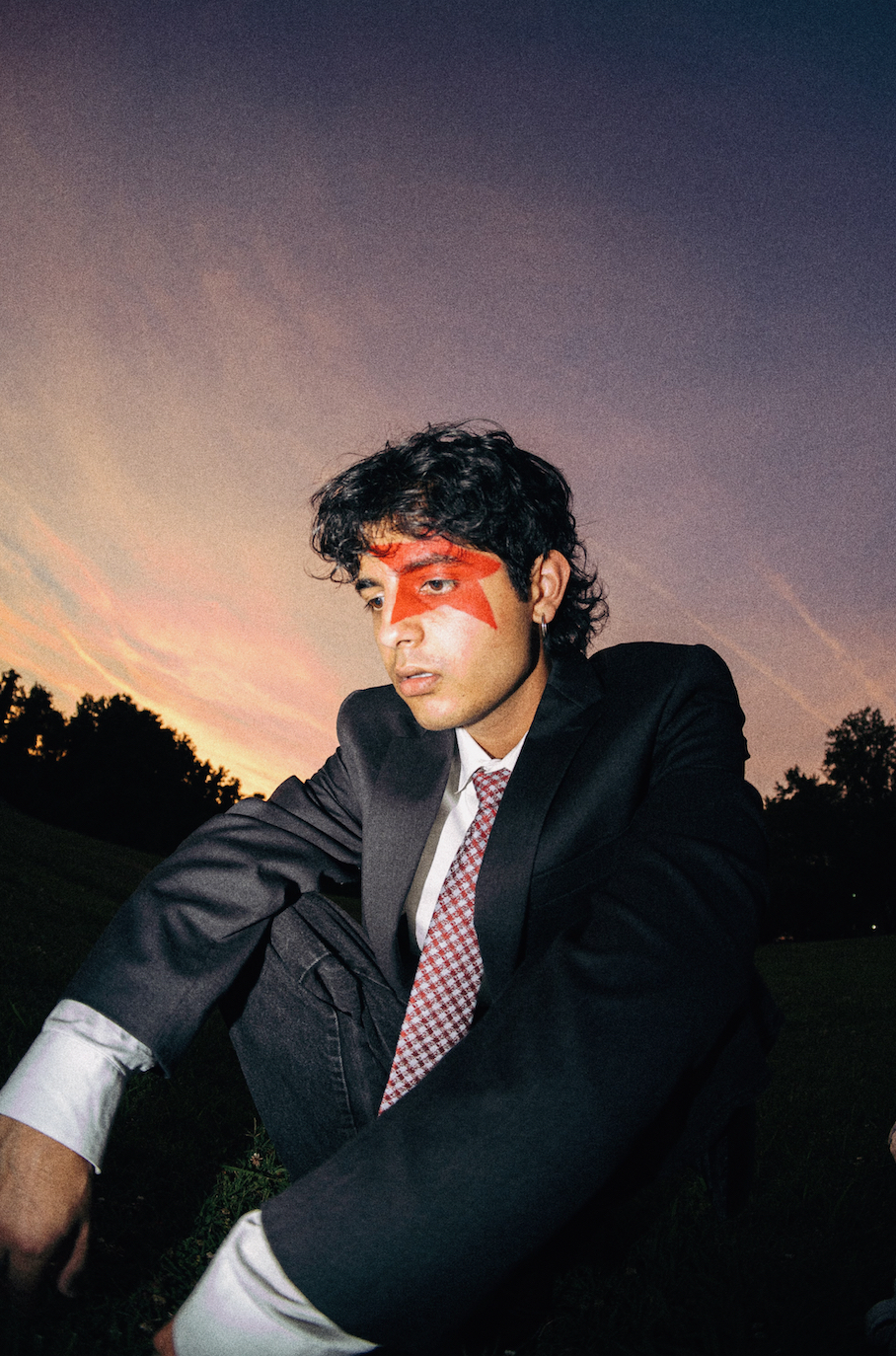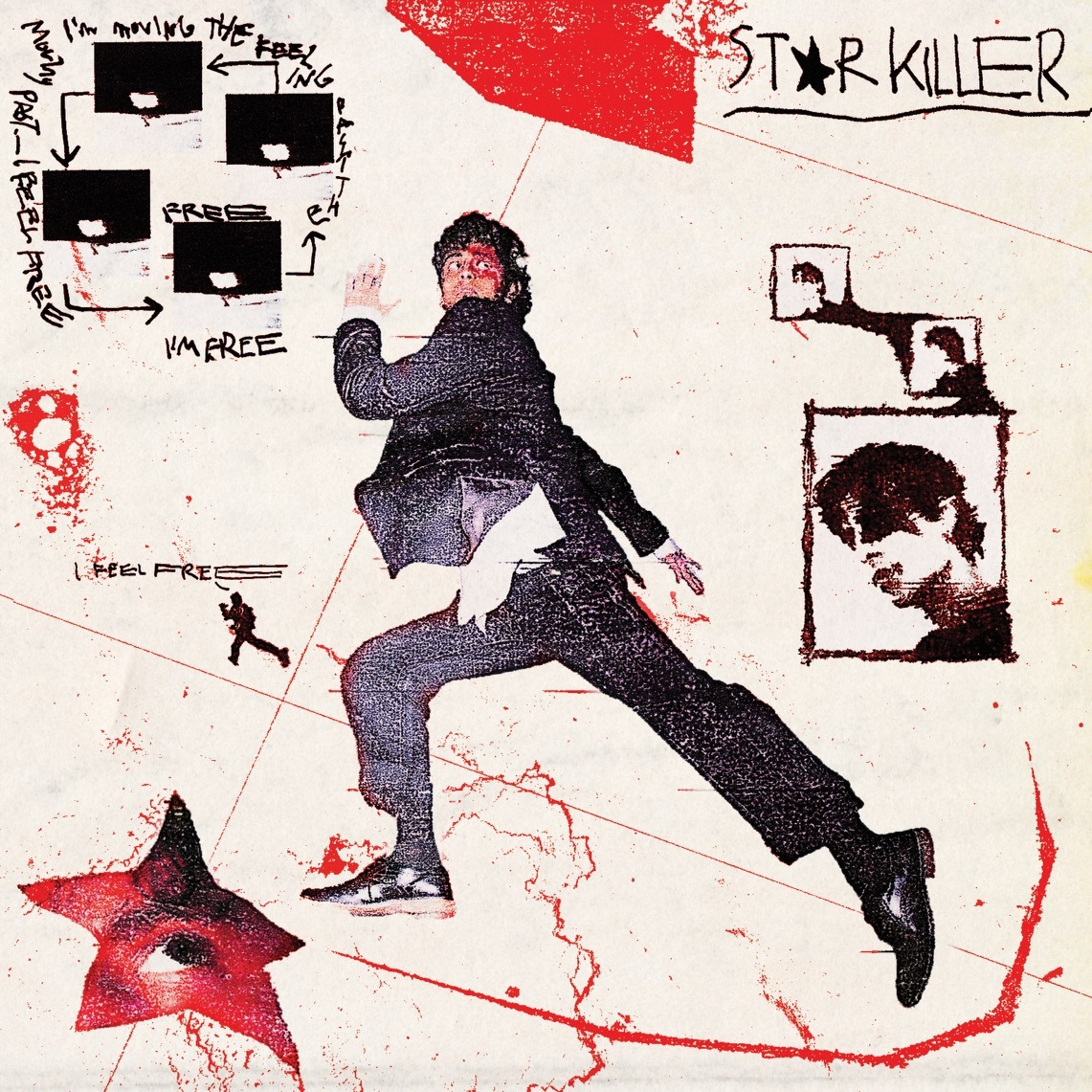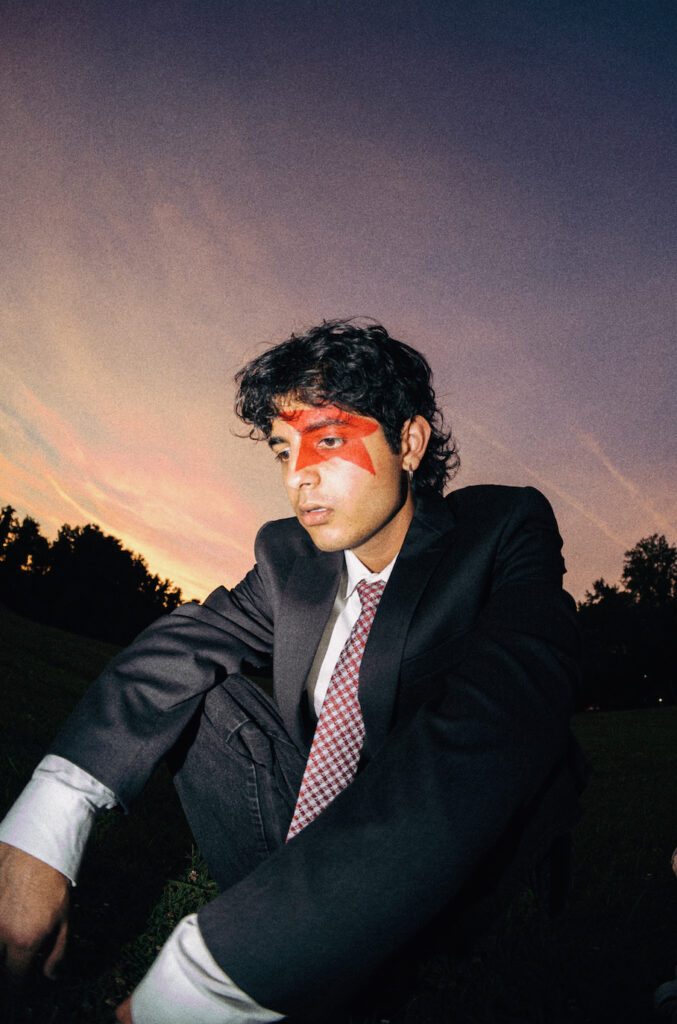If there’s one thing Curtis Waters knows, it’s internet fame. When the 22-year-old’s debut single “Stunnin” went viral on TikTok in 2020, it racked up hundreds of millions in global streams (a number exceeding one billion today). Followed up by album Pity Party, and his career was off. On-screen, it seemed the Nepal-born singer had finally made it—pushed past the gates of the cut-throat industry to emerge on the other side unscathed. With major coverage and high-profile collaborations, you’d certainly believe it. But on the other side of the keyboard, a young creative was searching for his sound, navigating a rapidly changing world while at it.
“I always felt like an outsider no matter where I went,” says the singer, whose childhood hometowns spanned an impressive five countries. “Since I moved around so much as a kid, it was hard for me to feel like I belonged to any culture, so I resorted to finding my communities online”. And find a community he certainly did. Experimenting with music first in his teens and now into his twenties, Curtis’ creative journey has earned him 1.5 million monthly Spotify listeners and 200k followers across Instagram and TikTok, with whom he shares an exciting announcement: new alt-pop single “STAR KILLER” and an upcoming album to boot.
An explosive anthem with an addictive guitar hook and echoing bassline, “STAR KILLER” diverts from Curtis’ quarantine-era pop past and steers more alternative in its heart-thumping sonics, with candid lyricism offering raw insight into the artist’s personal and cultural identity. “It feels important to be sharing this music because growing up I didn’t have many brown role models to look up to,” he says. “My main goal is to become the person I needed when I was a kid”.
Keep reading for more on our conversation with Curtis, as he talks “STAR KILLER” and the makings of his upcoming album.

V MAGAZINE: Congratulations on your new single and upcoming album! Let’s talk about “STAR KILLER” and the early days of building the concept. What did your creative process look like for this song?
CURTIS WATERS: I came up with “STAR KILLER” after I had just released my song “Manic Man”. I was so surprised by all the love that “Manic Man” was getting because for about a year I had been going through horrible insecurities and imposter syndrome about my art. I was terrified to release music again and felt stuck in my head. After releasing “Manic Man” and seeing how many people related to my vulnerable song about being bipolar, it freed me from this deep shame and judgement I had about my art.
The actual conceptualization of the song was very quick and easy. My friend Beep had been visiting my house this late night and he was about to go to bed, but I brought him to my room and made him put down this guitar riff I had in mind. As I was building out the bass and drums on my computer, I started free styling and came up with the ‘I’m moving past the feeling, I’m past the feeling, I’m free’ hook on the spot. I was running around my room screaming the hook all night. I had the flow for the verses, but it took me a few days to figure out the exact words, but I knew exactly what the song was about.
V: Is that process similar to how you’ve written past songs?
CW: This process was different from my last album because when I did Pity Party I worked on most those songs by myself in my bedroom, but this album I’m more open to collaboration. My friend Beep played the guitar on this, I made the beat, and my friend Aly recorded and mixed me.

V: We hear the album you have coming reflects how you managed rapid growth, success, and a large online following. Can you expand on what this album represents for you and how you hope it resonates with your audience?
CW: One of the main themes of this album is the pursuit of success and the sacrifices you make for it. I touch a lot on going from being a poor immigrant kid to gaining overnight success, dealing with bipolar disorder, and the guilt and hypocrisy of participating in capitalism. But with all that said, it’s still a fun album. It’s not a textbook. Even if you don’t give a fuck about a single thing I’m talking about, I hope you still enjoy the songs and dance around.
As with everything I do, I hope this album inspires other people to be more vulnerable and honest and gives them the confidence to follow their own dreams and goals. This album to me was necessary to heal past a lot of my trauma and putting it in these songs has helped me get over a lot of my personal issues. I hope other people can also listen to this album and feel the same sort of catharsis I did while making it.
V: And how does it feel to be sharing such a personal journey publicly?
CW: It feels important to be sharing this music because growing up I didn’t have many brown role models to look up to. I didn’t have people in the media talking about the things that I’m going through in such a vulnerable manner. Oftentimes, I feel really discouraged about music and feel too ashamed to release anything, but I need to remind myself that what I do is important, and people are really impacted by my art. My main goal is to become the person I needed when I was a kid.
V: Lastly, what’s next for you?
CW: I’m going back home to Nepal next month! I haven’t been back since I was 14 which was when I first started making beats. I remember, I would constantly dream about performing in front of people and have them sing my songs out loud to me, and having a cool costume and all this stuff. That’s when I first learned I was bipolar, and I was trying to learn how to cope with everything. It feels like a full circle moment to go back finally, after I’ve reached so many of those goals. It really makes me grateful and appreciate how far I’ve come since Nepal. I’m super lucky to be doing all this shit.
Discover More


